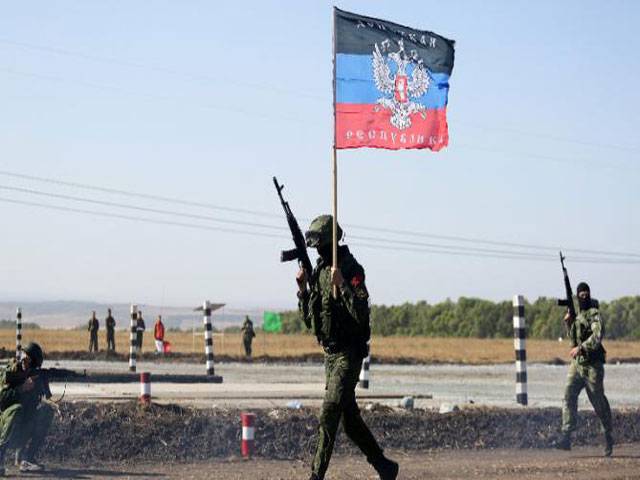PARIS - Credit rating agency Standard & Poor's on Friday declared Ukraine's sovereign debt to be in "selective default" because of the war-torn nation's debt restructuring negotiations.
Cash-strapped Ukraine has been struggling with its debt since entering a deep economic depression after war broke out with pro-Russian insurgents in its eastern industrial heartland early last year. The default means Standard & Poor's believes Ukraine will not repay its debt to all commercial bondholders in full. The downgrade affects only the bonds it has issued in foreign currencies, which had already been rated as vulnerable to default.
Ukraine had invited commercial bondholders to debt restructuring meetings on October 14 with an offer that would include a 20 percent "haircut" in the money they are owed, and a delay on $11.5 billion in payments on the principal until after 2019, the agency said in a statement. Ukraine's offer includes its issuance of a 20-year bond whose return to investors will depend on the nation's economic growth, it said.
"Ukraine's invitation constitutes the launch of what we consider to be a distressed debt restructuring," said Standard & Poor's, which had warned of the impending downgrade to default status a month earlier.
If the restructuring negotiation with creditors is successful, Ukraine's rating will be upgraded to show it is no longer in default, but still vulnerable to default, it said.
The pro-Western government's dispute with its commercial creditors appeared to be resolved when the sides struck what Kiev called a "win-win" agreement last month.
But the August deal is on the verge of being shredded by a small group of private lenders who came out on its losing end.
In August, Ukraine's US-born Finance Minister Natalie Jaresko crowned more than five months of excruciating discussions with Franklin Templeton and three other financial titans by signing a restructuring agreement that cuts Kiev's debt by a fifth.
The terms went a long way toward meeting the $15.3 billion cost-cutting target that the International Monetary Fund had set in return for a $40 billion global rescue package to be granted under strict conditions over the coming four years.
But those negotiations left out a smaller group of investors that included Aurelius Capital Management -- the same US hedge fund now battling the cash-strapped government of Argentina.
Aurelius is particularly unhappy because it holds debts that come due in the coming months. It would therefore have to wait much longer for a return on its investment than Templeton and other creditors holding Eurobonds maturing at later dates.
Friday, April 19, 2024
S&P declares Ukraine in 'selective default'

Formula 1 returns to China for Round 5
9:05 PM | April 19, 2024
Germany head coach Julian Nagelsmann extends contract till 2026 World Cup
9:00 PM | April 19, 2024
IMF urges Italy, France to spend less, Germany to loosen purse strings
8:57 PM | April 19, 2024
PM calls UAE president, admires Emirati leadership's response to recent Dubai rains
8:55 PM | April 19, 2024
Church leader calls for including Christians in Gandhara Corridor
8:50 PM | April 19, 2024
A Tense Neighbourhood
April 19, 2024
Dubai Underwater
April 19, 2024
X Debate Continues
April 19, 2024
Hepatitis Challenge
April 18, 2024
IMF Predictions
April 18, 2024
Kite tragedy
April 19, 2024
Discipline dilemma
April 19, 2024
Urgent plea
April 19, 2024
Justice denied
April 18, 2024
AI dilemmas unveiled
April 18, 2024
ePaper - Nawaiwaqt
Advertisement
Nawaiwaqt Group | Copyright © 2024





